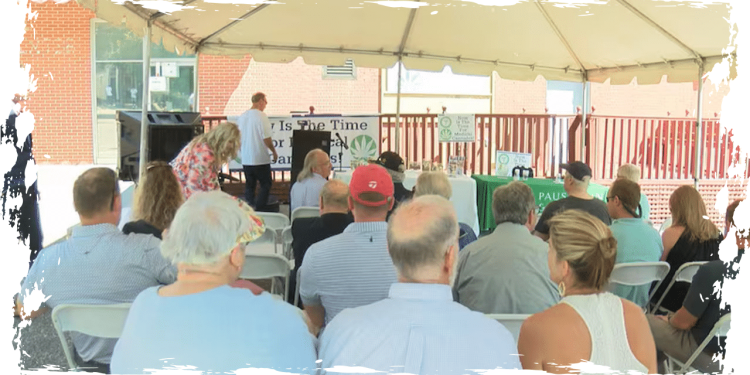Alabama’s doctors claim they are unable to provide medical marijuana to their patients, despite the state legislature legalizing the treatment three years ago. As of now, patients still do not have access to the medication.
The opening of medical marijuana dispensaries in Alabama has been halted due to ongoing lawsuits between companies and the Alabama Medical Cannabis Commission.
According to Dr. Marshall Walker from Alabama, his patients frequently inquire about when they will receive the COVID-19 vaccine. He stated, “When is it going to happen, doc? When are we going to get it?”
During a gathering of doctors and patients outside a soon-to-open cannabis clinic in Montgomery, physicians from other states shared their experiences using the substance to aid in medical treatment.
Corey Hebert, a doctor from Louisiana, witnessed a mother administering medical cannabis to her child, which resulted in a remarkable outcome. “I’ve watched a mother give their child medical cannabis and the seizures stopped for the first time,” he shared.
According to Hebert, veterans suffering from chronic pain or PTSD have found cannabis to be an effective treatment.
According to him, the organic medication has been proven to be non-addictive. Additionally, it has the advantage of being non-lethal, unlike several other medicines.
Hebert shared that prescribing opioids to his patients makes him feel like he is causing harm. He strongly believes in the need for alternative medication options that can provide the necessary relief to patients in pain.
During a recent meeting, a doctor brought up the staggering statistics that indicate over 7,000 members of the US military have died in combat since the 9/11 attacks, while a shocking 40,000 have lost their lives to suicide. However, the medical professionals present at the meeting believe that medical cannabis can provide a solution to this issue and also help those who suffer from chronic pain.
Read More:
- Dozens of black pastors urge Shapiro to embrace school choice
- Calls for funding and support for VA to address severe traumatic brain injuries

